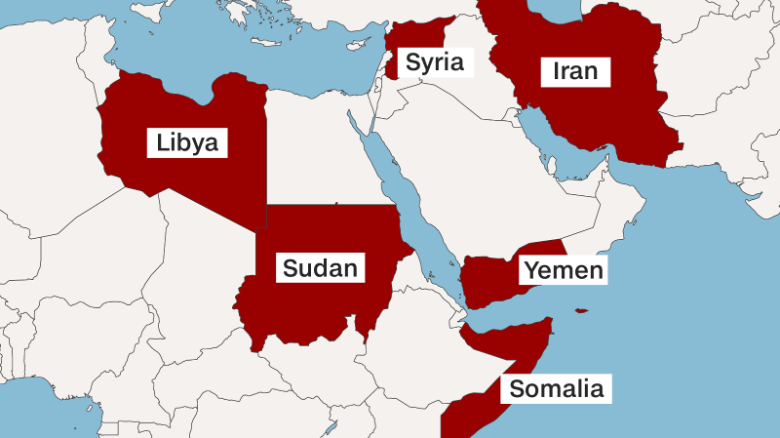
According to the Washington Post:
Visitors from six predominantly Muslim nations (Iran, Libya, Somalia, Sudan, Syria and Yemen) will be denied visas to the United States under new guidelines that take effect Thursday night unless they can prove very close family ties to someone already in the country or an institution such as a workplace or university. The rules sent to diplomatic posts worldwide Wednesday prompted immediate criticism for the narrow and somewhat quirky definition of close family. A son-in-law or a step-daughter can get in, but a grandmother or uncle cannot. Senior administration officials said they drew up the list of close relationships based on the definition of family in the Immigration and Nationality Act passed almost 50 years ago.
The relatives deemed sufficiently close family to exempt people from the travel ban, whether as visitors or refugees, are listed as a parent, spouse, child, an adult son or daughter, son-in-law, daughter-in-law or sibling, as well as their stepfamily counterparts. The exemption explicitly does not cover a number of other family relationships: grandparents, grandchildren, aunts, uncles, nieces, nephews, cousins, brothers-in-law and sisters-in-law, fiances and other “extended” family members.
Advocates and lawyers were quick to question the family list.
“President Trump’s directive might as well pull children out of the arms of their grandparents who will no longer be able to visit for the sole reason that they are Iranian,” said Shayan Modarres, a lawyer with the National Iranian American Council. “The president is supposed to protect American families, not rip them apart.”
“Defining close family to exclude grandparents, cousins, and other relatives defies common sense,” said Johnathan Smith, legal director of Muslim Advocates, a civil rights group that plans to send monitors to Dulles International Airport on Thursday night.



